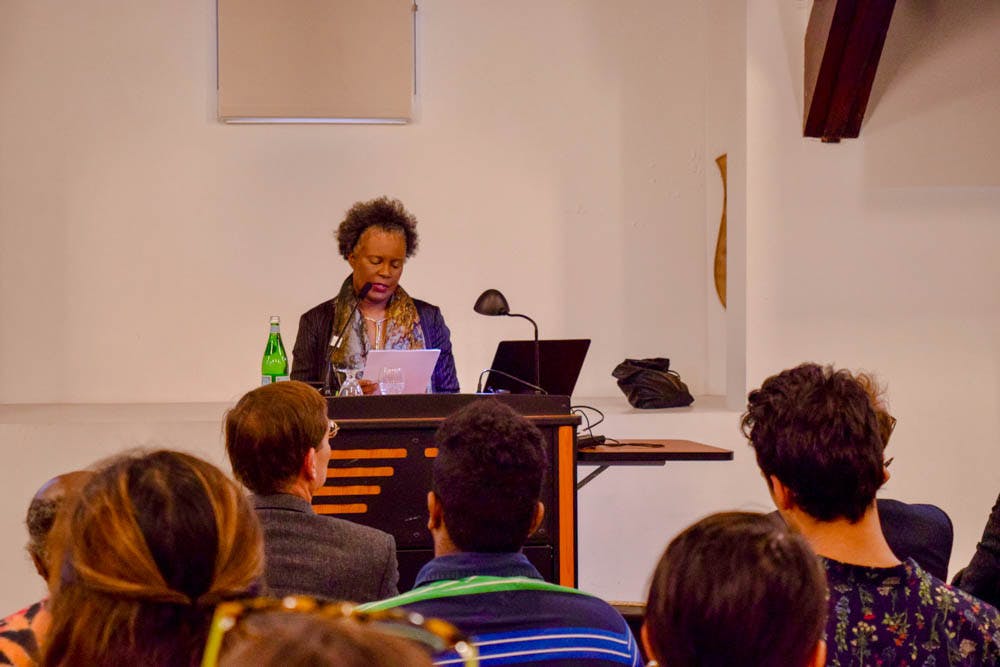Acclaimed poet, essayist and scholar Claudia Rankine conveyed the multi-faceted cultural conception of race — equal parts abstract and material — during an Oct. 2 lecture at the University.
“The ask I am making of everyone here, is that you begin to think of the racial imaginary, as that of which is already living,” Rankine said during her talk titled “The Creative Imagination and Race.”
Rankine is most well known for her book of poetry, “Citizen: An American Lyric,” which unites conversations about race with lyricism, covering transgressions in the classroom to transgressions against Serena Williams on the tennis court. Rankine’s lecture and subsequent book signing delved into the discourse around race in creative histories through discussions and analyses of Eurocentric narratives.
Audience members first heard Rankine discuss Édouard Manet’s painting “Olympia,” which depicts a white naked woman and a black maid named Laure. Referencing Denise Murrell’s exhibition titled “Posing Modernity: The Black Model from Manet to Matisse to Today,” Rankine spoke about how Laure is historically ignored by art historians, and this omission represents the Eurocentric ideologies of our society.
“The same attentiveness we give to salutational anxiety, we should be giving to the globe of the racial imaginary in every image or sentence composed or consumed,” Rankine said. She asked the audience how society could achieve this, and replied, “We have to be willing to think.”
Rankine further engaged the audience in deliberate thought about racial and social implications of creative work by presenting a number of other discussions and art pieces that challenged racial norms of art and culture. These ranged from voiceovers of Stanley Kubrick’s film “Eyes Wide Shut” to paintings that rethought the racial dynamics of Manet’s “Olympia.”
Timothy Bewes, the interim director of the Cogut Institute of Humanities, discussed how Rankine’s lecture and work fits into the mission of the Cogut Institute. “Claudia Rankine has crystallized the conversation about race in America. … It’s impossible to read (her work) and not be reminded that race is a social experience, part of our collective imaginary,” he told The Herald.
“(She is) the perfect speaker to help contribute to that ongoing conversation.”
Rankine’s lecture served as one event in the Cogut Institute’s Greg and Julie Flynn Speaker Series. Lecturers for the series are chosen from a list of individuals nominated by the Brown community. Adam Gopnik, staff writer at the New Yorker, is slated to speak as part of the series early next year.
Audience member Nick Michael ’22 spoke about his appreciation for Rankine’s talk. “I like how she incorporated others’ voices into her lecture while still remaining true to her own,” he said.





